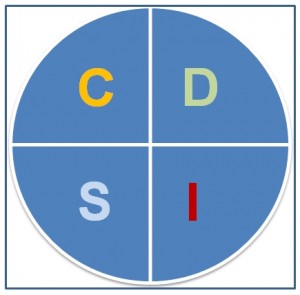With Self-Awareness Comes Choice
Marcia felt overwhelmed.
“My life is out of control. I have too much going on at work…and I can’t keep up with my personal life stuff either.”
Perhaps you’ve felt like Marcia.
At one time or another, we’ve all felt overwhelmed, helpless—powerless to control what’s happening to us and around us.
At other times, we’ve felt like we had the world by the tail—nothing could go wrong, we thought (…until it did).
The reality is that you have very little control over what goes on in the world around you. Sometimes, things just don’t work out despite your smart decisions and gallant efforts. Other times…well, you just get lucky.
There is a part of you world, however, over which you have complete control—YOU. Actually, you’re the only one who can control you. While you don’t have the power to control what happens next in your life—for instance, whether it will be raining or the sun will be shining tomorrow, whether you do or don’t get that promotion at work for which you’ve worked so hard—but you do have the power to control how you respond to what happens.
And that power enables you to find the positive possibilities even when things don’t work out as planned, rather than automatically adopting a “Why is this happening to me?” attitude. But, in order to do that, you must have a balanced and honest view of your own personality. That’s why self-awareness is so important.
With self-awareness comes choice. When you know your natural response tendencies, you can decide if it is the best choice for a particular situation or if a modification of that behavior is more appropriate. Instead of allowing yourself to follow your natural way of responding, you can take control of the situation by deciding what to do. The more you make those decisions, the more you will come to realize how much control you actually have—the power to decide how you experience life.
The DISC self-assessment identifies your strengths and development areas. It is able to measure your hard-wired behaviors. In practice this means that the results show who you actually are—and not what you think you need to be—in the existing environment. As a result, the report identifies your true strengths and development areas, which in turn, allow for real performance improvement.

